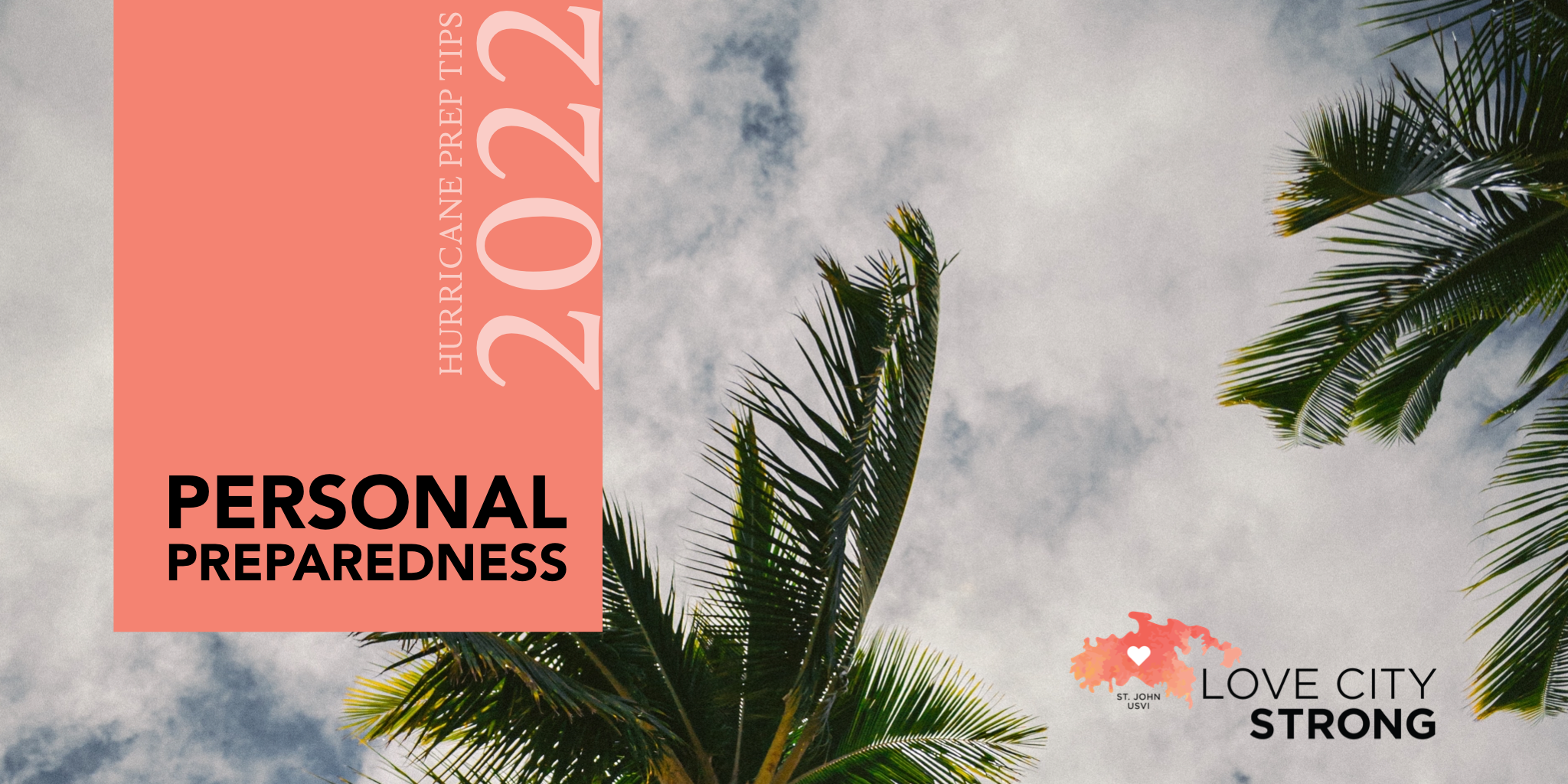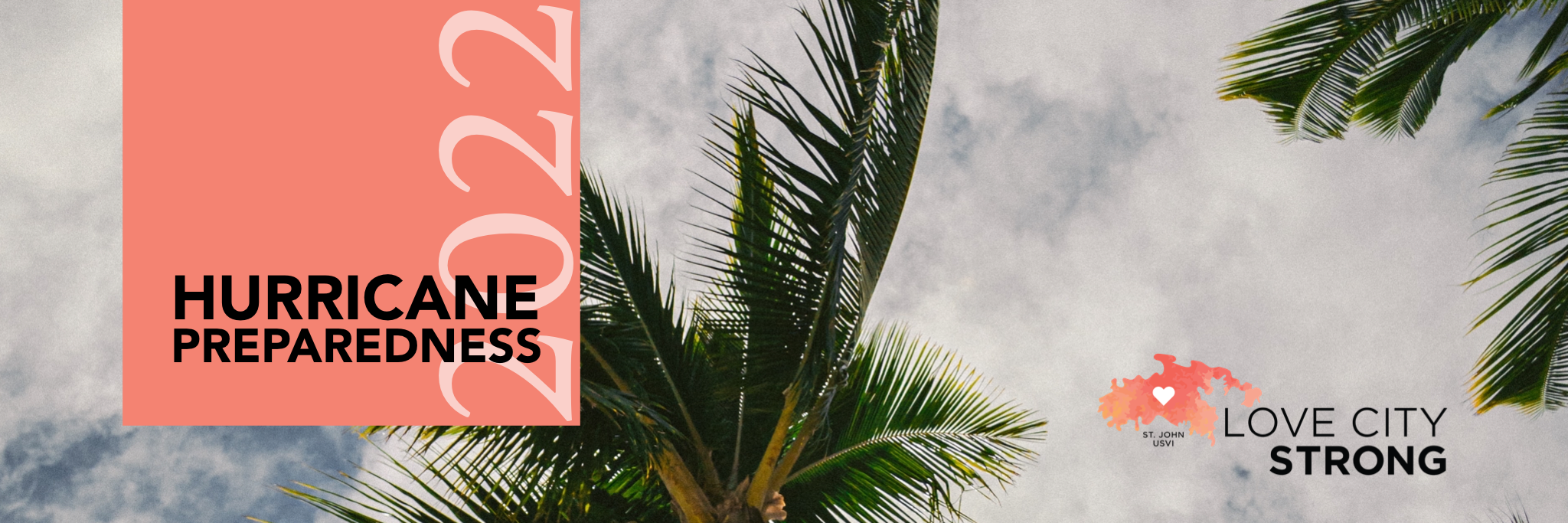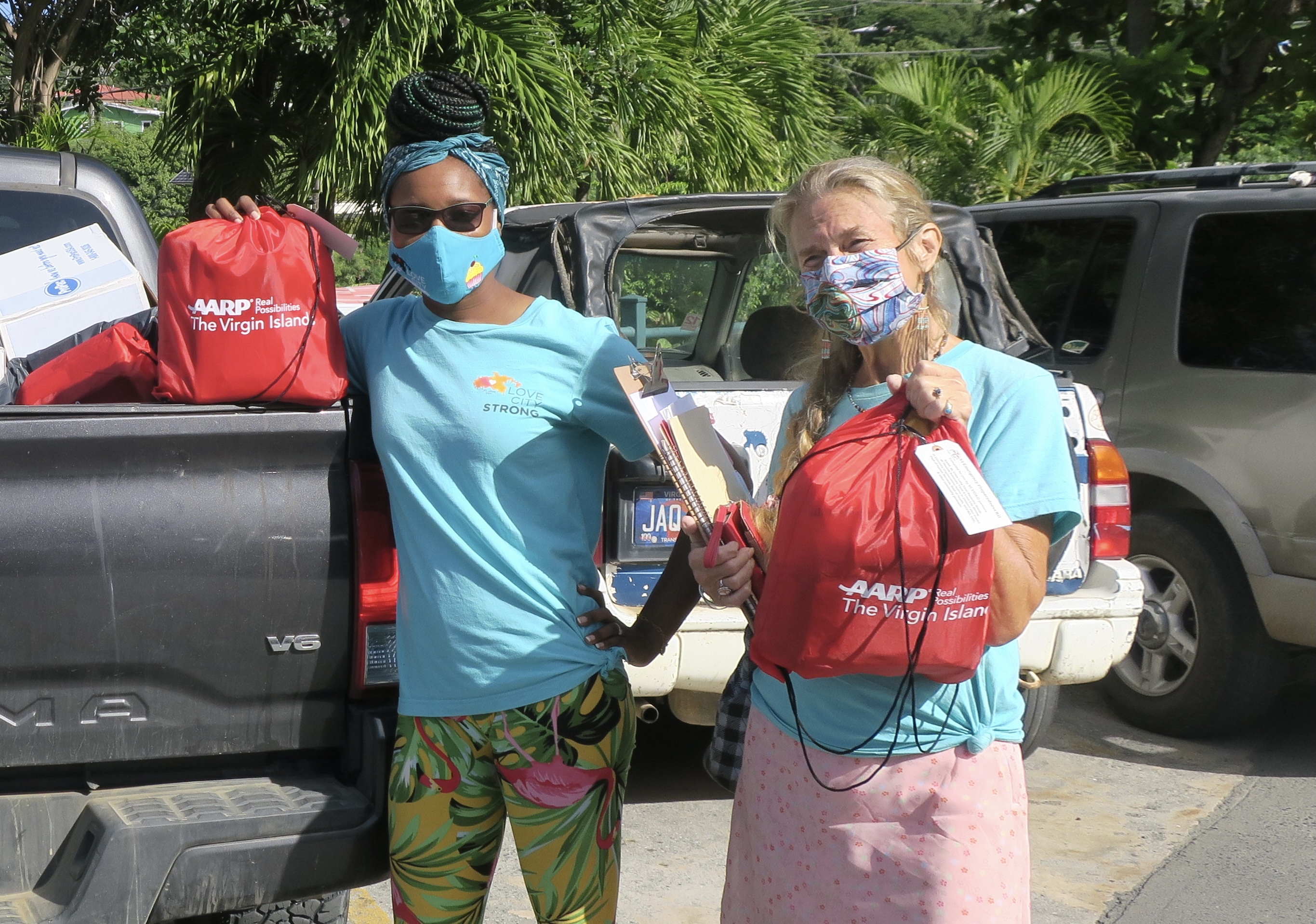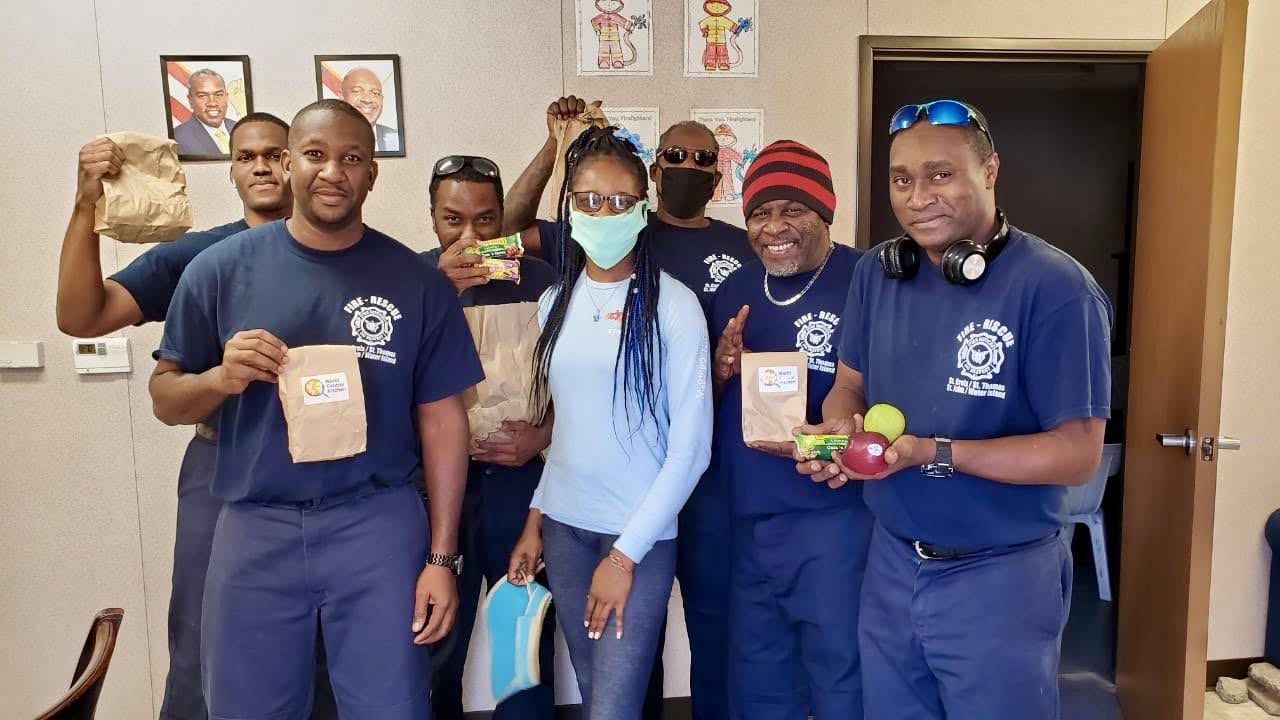
We often focus on community preparedness here at Love City Strong, but resilience really begins with personal preparedness.
When you’re on a plane and the flight attendant is giving the safety lecture, they always tell you, in the event of an emergency, place your mask on first before helping those around you. Personal preparedness functions in much the same way. By taking action early to ensure that you are as ready as possible, you make yourself more available to help your family, friends, and neighbors in the event of a disaster.
Here are a few tips to help improve your overall readiness, particularly during hurricane season:
Know your needs
Do you have dietary restrictions? Are you on a daily medication? Do you struggle to function without that morning cup of coffee? All of these are things you can plan for in advance. Make sure you have the food you need on hand, and speak to your doctor about how to safely and responsibly build an emergency supply of medication. If coffee is your lifeblood, include a camp stove and a coffee press in your emergency kit!
Know your surroundings
Maybe your home is surrounded by trees, or maybe you’re exposed to a breeze even on a calm day. Understanding your surroundings is the first step to understanding your risk. Check your home and property for potential hazards, and take steps to address them where necessary.
Know the process
Make sure you have emergency contact information written down and readily available. Include family, friends, and neighbors as well as work, insurance, and emergency numbers. Do you have a pet? Include your vet’s number as well.
Plan financially
Even if you can’t spare much, it’s important to try and set aside some emergency cash to have on hand. Whether you save your spare change and singles all year round, or team up with your roommates to start a household emergency fund, or have a savings account that serves the purpose, find a strategy that’s manageable for you and begin the journey. For more information about this and other aspects of financial preparedness, check out this article on Ready.gov.
Think about the “what ifs”
Take a few minutes and imagine what might happen if a storm came through tomorrow. Would you lose power? Would your car be secure? Would you need to reconnect with your family at a predetermined rally point, or would you likely be together? Use the preparedness planning process to poke holes in all the scenarios you can think of, and revise your plan accordingly.
Of course personal preparedness includes many things that we talk about in the context of community preparedness as well. Building a kit, making a plan, strengthening your home… all familiar concepts. The important thing to remember is to address these things in ever expanding circles, starting with yourself, then your family, then neighbors and colleagues, and the greater community. Following these steps now will make you much more useful to them in the event of a disaster!

Here we are in May, again, and it’s time to start thinking about our hurricane preparedness efforts. For those of us who live in “hurricane alley”, these tasks are annual habits. Forming habits can be helpful, but sometimes they can make us complacent. Each year, it’s important to revisit your emergency plan, check your kit, and make sure your home and family are ready for the season.
Threats from hurricanes include powerful winds, heavy rainfall, storm surges, coastal and inland flooding, rip currents, tornadoes, and landslides. Hurricanes can often undergo rapid intensification, meaning they can quickly gain strength before and as they make landfall. For this reason, it’s important to begin your preparation well in advance of an incoming storm. Before hurricane season starts, you should:
- Update your emergency plan with your family
- Check your insurance and strengthen your home
- Assemble disaster supplies
- Help your neighbors

As COVID-19 vaccination efforts continue in the US Virgin Islands and across the globe, many are wondering what to expect when they receive their doses, or are trying to decide if they should get vaccinated in the first place.
We interviewed members of our team who have received the vaccine, and asked them to share a little bit about their experience before and after receiving it.
Kenisha Small, our Community Relations Manager (pictured above, left) and Deborah Ramsay of our Go Team (pictured above, right) were both vaccinated at the Island Health and Wellness Center on St. John in February.
Here’s what they had to say (responses have been edited for length and clarity):
Why did you choose to get the vaccine?
Deborah: I got the vaccine for three reasons: The work I do directly helping and speaking with St. John seniors; because my doctor advised that, since I am over 65, the possible side effects of the vaccine were likely much less severe than the side effects of getting COVID; and because my daughter and family said they would not want me traveling to visit them in the United States if I chose not to get the vaccine.
Kenisha: I got the vaccine to assist in keeping the seniors in my family and our community safe.
Did you have any fears or anxieties about getting the vaccine?
D: Yes! I am fairly anti-vaccine. I have never gotten a flu shot, for instance. I was concerned about the side effects and was unsure about how effective (the vaccine) might be.
K: I was more surprised at the fact that they had already created a vaccine for something so seemingly new.
What were some of the resources that you found helpful in answering questions about the vaccine? In other words, where or who did you turn to for information?
D: My daughter, the internet, friends, colleagues, and my doctor.
K: I turned to my coworkers at LCS for guidance and gaining knowledge to build my confidence; specifically our Operations Manager Stephen, who is also an EMT and our Executive Director, Meaghan.
Describe your experience getting the vaccine.
D: I went to Island Health & Wellness. We had to wait outside the office briefly. Once inside, there was a lot of paperwork to fill out. We were kept at a safe distance from each other. It took about 1/2 hour including filling out the paperwork and having to sit in the office for 15 minutes after getting the shot to observe us for possible immediate side effects. The shot took seconds and was hardly noticeable! And I HATE shots. They scare me and I can’t watch. But it happened so quickly I barely noticed!
K: I got an appointment at 2pm for the vaccine at Island Health and Wellness. The entire process took about 45 minutes to an hour, which included arriving early, waiting in line, and remaining for 15 minutes after receiving the shot. Process was simple, somewhat smooth and quick once inside.
Which vaccine did you get?
D: Pfizer
K: Pfizer. I’ve had my first dose and am due to receive the second dose on March 4th.
Did you experience any side-effects after your vaccine doses?
D: Yes. A slightly sore arm for a few days. The first night, it was hard to sleep on that side. After the first shot I felt a little sick that night and most of the next day. I had slight body aches, a bit of a headache, and low energy. After the second one, (I had) slightly less effects. Mostly just low energy.
K: I had a sore arm for a few days, and on the day of the shot I just felt lazy or sluggish afterwards; otherwise it went well!
What’s one thing you think that everyone getting the vaccine should know?
D: The shot itself is barely noticeable. At Island Health, they were very efficient. Plan to rest the day after!
K: From what I can tell, it’s safe!
For more information about the COVID-19 vaccine, check out the Virgin Islands Department of Health’s FAQ page, the CDC’s vaccine information website, and this video from Johns Hopkins Medicine.

This week, our team partnered with the Virgin Islands Fire Department and Our Lady of Mt. Carmel Catholic Church to help distribute boxes of food to St. John residents as part of the USDA’s Farmers to Families program.
While this is the fourth time that boxes of food have been given out on St. John, the current distribution model relies on those in need going to distribution sites.
Our team’s inclusion in this round of distribution ensured that a crucial group of individuals was able to receive this program’s benefits: Seniors and people with a disability or chronic health condition that renders them homebound. We delivered boxes of food directly to 80 homes across the island in a single day.
Our longstanding model of going directly to those we serve for all of our programs, rather than making them come to us, means that we are uniquely able to navigate St. John quickly and efficiently. This allows us to provide people with goods and services from other organizations who might otherwise not be able to access them.
Thanks to the support of our Board and donors, we are able to provide vehicles for our employees to participate in programs like this. Providing our team with vehicles, PPE, and the tools that they need to do their jobs ensures that they do not have to use their personal property for work purposes. This lends itself to our belief in a strong work-life balance, and strengthens our impact.
Your donations ensure that we can continue to support other organizations’ efforts when we are not working on our own programs. Click here to read more about what we do, and please consider a donation today. With your help, we can keep supporting our community whenever we are able.

In December 2019, the novel coronavirus changed lives on a global scale. At Love City Strong we have made every effort to react as quickly as possible; pivoting from what we had originally planned for 2020 to make addressing the issues caused by COVID-19 our number one priority.
COVID-19 Response Timeline
On March 6th, we began purchasing bulk supplies of PPE and sanitation products to give to healthcare professionals, first responders, and essential workers on St. John in anticipation of the global shortage. Our distribution of these supplies occurred throughout the month of March, a full two months before the national stockpile supplies arrived in the Virgin Islands.
On March 10th, we began to distribute COVID-19 informational flyers in English and in Spanish across the island. These flyers were vetted by the Virgin Islands Department of Health and the CDC, and featured all of the information known about COVID-19 at that time. Over 500 flyers were distributed within 72 hours.
On March 13th, one day before the first case of COVID-19 in the Virgin Islands was announced by territory healthcare officials, we made the decision to close our office to the public and either suspend or greatly modify our programs in order to adhere to social distancing guidelines. Our teams modified their procedures to either limit or cease in-home visits with our clients and increased regular sanitation of their work vehicles and supplies. We also encouraged all employees to work from home rather than in our office. As of August, these practices remain in place.
On April 13th, we began partnering with World Central Kitchen to deliver hot and cold meals to seniors, families with children, and individuals with a disability or chronic health condition. We also delivered meals to healthcare workers and first responders every other week in addition to our household deliveries. Our relationships with the small business community were able to make this program more robust and efficient—We hired St. John Brewers to increase meal preparation and storage capacity, and Rock n’ Rolla Charters to provide both additional transportation for our team and a Spanish translator. Our Go Team delivered over 500 meals and snack packs directly to over 200 different households every single week for three months.
In May, the CDC released new guidance regarding the importance of wearing masks in public. To encourage and normalize this practice, we launched a month-long social media campaign called “We Not Me.” During the campaign, we shared photos that were sent to us from people in the Virgin Islands and around the world wearing their masks. Each photo was accompanied by a short testimonial from that person with their specific reasons for taking this precaution seriously. You can view the entries in this campaign on our Instagram account by clicking the #WeNotMe story highlight.
In June we partnered with St. John retailer Big Planet to provide free, reusable face masks to St. John residents and visitors. The first batch of masks were provided to households that we were delivering meals to, and to churches in Cruz Bay and Coral Bay. We then set up small buckets of masks at several different businesses across the island, where they are available to anyone in need. The free masks will be provided at these locations from June through the end of August, and thus far approximately 2,000 masks have been given away.
Our Mission Moving Forward
At LCS, it has always been our philosophy to prepare for the worst and hope for the best through all hazards, and this has served us well during this unprecedented time. Through the early and decisive actions of our team, we have been able to continue serving the community of St. John through both our existing programs and new, short-term initiatives while keeping ourselves and our clients safe.
Wherever you are, we urge you to continue to be vigilant and responsible as COVID-19’s impact continues. This isn’t over. Whether you are young or old; healthy or high-risk, we must all continue to do our part to take extra care with our family, friends, neighbors, and colleagues.
